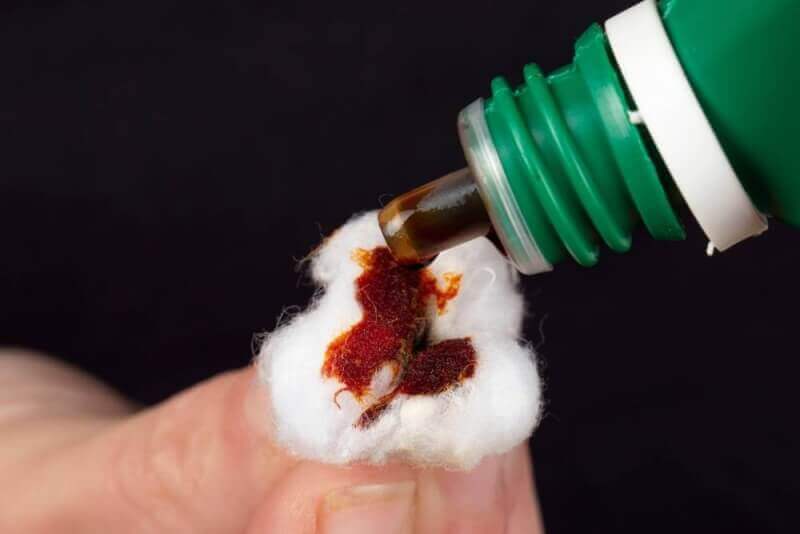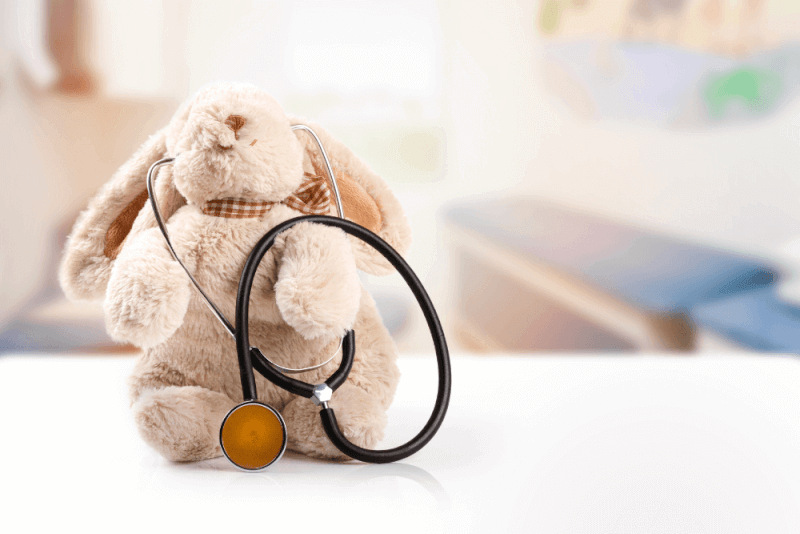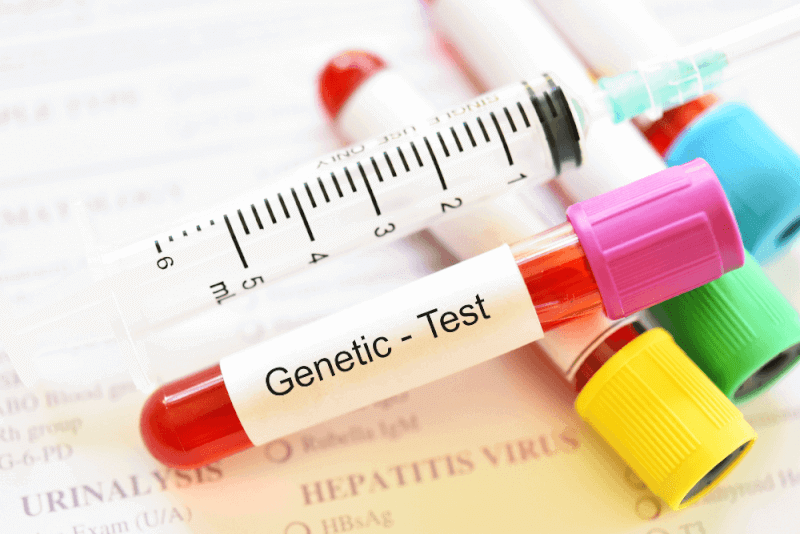30-Second Summary
- It is one of the most effective methods used in the treatment of active thyroid cancers.
- Radioactive iodine therapy is also used in the treatment of hyperthyroidism, which causes symptoms such as tremors, tachycardia, anxiety, irritability, or sleep problems due to the thyroid gland producing excessive hormones.
- Radioactive iodine therapy is generally administered to patients who have undergone surgery due to thyroid cancer, usually in the first or second month after the operation. It is also applied to patients with tumors larger than 1 cm in diameter or to those with tumors smaller than 1 cm but with observed metastasis.
- Before starting radioactive iodine therapy, patients need to stop taking certain medications they use regularly. These medications are specified by the doctor administering the treatment. In addition, patients should stop consuming iodized salt for 2 weeks before the treatment. Some dental fillings may contain iodine.
What is Radioactive Iodine Therapy?
Radioactive iodine therapy, popularly known as atomic therapy, aims to eliminate cancerous cells while preserving healthy tissues in thyroid cancers. It is one of the most effective methods used in the treatment of active thyroid cancers.
In addition to thyroid cancers, radioactive iodine therapy is also used in the treatment of hyperthyroidism, which causes tremors, tachycardia, anxiety, irritability or sleep problems in patients due to excess hormone secretion by the thyroid gland.
For the thyroid gland to function, iodine must be present in the body. Normally, the iodine needed for the thyroid gland comes from food. Radioactive iodine therapy is a type of treatment developed on this basis. For this reason, small doses of iodine are given to the body to target cancerous cells.
Who Can Receive Radioactive Iodine Therapy?
Radioactive iodine treatment is usually administered in the first or second month after surgery for thyroid cancer. In addition, it is applied to patients with tumor radius over 1 cm or tumor radius less than 1 cm but metastasis is observed.
Things to Consider Before Radioactive Iodine Treatment
Before starting radioactive iodine treatment, patients should stop taking certain medications that they have been taking continuously. These medicines are communicated to the patient by the treating doctor. In addition, patients should stop consuming iodized salt for 2 weeks before treatment. Some dental fillings contain iodine. If patients have such a filling, it should be removed. In addition, the use of mouthwashes or multivitamins containing iodine should be stopped.
For 2 weeks prior to treatment, patients should eat an iodine-poor diet and avoid soy and soy products, processed meat products, snacks such as chips or nuts, foods with brown food ingredients, fortified milk and dairy products, ice cream, margarine, tea bags, coffee, colored instant drinks, chocolate, acidic drinks, dark green leafy vegetables, strawberries and red pepper spice.
Patients are fed a diet of fresh fruit and vegetables, spices, natural red and white meat, rice and pasta prepared with natural oils and broths. However, patients should minimize meat and poultry products 5 days before treatment.
It is important that breastfeeding women do not breastfeed their babies until treatment is complete. They are also advised to postpone their pregnancy plans for 1 year if they are planning a pregnancy.
How is Radioactive Iodine Treatment Administered?
In radioactive iodine treatment, patients are given an iodine capsule called iodine-131. It contains a small amount of iodine as well as radioactive substances. When the thyroid glands start to use iodine, radioactive substances start to work on the cancer cells.
Patients cannot accept companions or visitors in radioactive iodine treatment, which is applied in a period ranging from 1 to 3 depending on the patient’s condition. In addition, patients should stay away from pregnant women and children for a while.
Things to Consider After Radioactive Iodine Treatment
The most important point that people with radioactive iodine treatment should pay attention to after treatment is to stay away from people. Patients under the influence of radioactive material should not be in contact with other people for 15 days in order not to affect other people. Short-term visitors are acceptable, but there must be at least 2 hours between the patient and the visitor. There must be a distance of meters. In addition, it is especially important for pregnant women and children to stay away from patients. People over 60 years of age are unlikely to be affected by radiation and therefore do not need to take additional precautions.
Patients should avoid using shared toilets as much as possible. They should also use the toilet sitting down. Using a saturated toilet increases the risk of transmission. In the cleaning phase, toilet paper should be used and flushed down the toilet instead of collecting it in the garbage. Hands should then be washed with plenty of soap and water. After washing hands, it is important to disinfect the sink.
In addition, items such as forks, spoons, soap or towels should not be used in common with the patient and the places that patients come into contact with should be constantly disinfected.
If patients visit a doctor for any reason during this period, the doctor and nurse should be informed that they are receiving treatment.
The patient should shower and drink plenty of water every day during and after treatment. In this way, the radiation in the body is removed from the body more quickly.
To prevent damage to the salivary glands, patients are advised to rinse their mouths with lemon juice and chew gum.
Side Effects of Radioactive Iodine Treatment
Patients may experience some side effects during radioactive iodine treatment. Although these side effects are usually mild, they can seriously affect some patients. However, the side effects caused by the treatment will go away on their own after the treatment has ended. Side effects caused by radioactive iodine treatment include:
- Fatigue,
- Swelling of the salivary glands,
- Tenderness in the neck
- Dry eye
- Dry mouth
- Loss of taste,
- Nausea
What are the long-term risks of radioactive iodine treatment?
Radioactive iodine therapy is one of the safest treatment methods. The long-term risk of radioactive iodine therapy used in the treatment of hyperthyroidism is that it causes hypothyroidism in patients. However, this problem is solved by giving patients thyroid hormone medication. Hypothyroidism is seen in the majority of radioactive iodine treatment of cancer patients. A small increase in cancers is also expected in these patients. In some patients, the salivary glands may be damaged by the treatment. To prevent this, it is recommended to use substances that stimulate the salivary glands, such as lemon juice or vitamin C.
Special Warnings for Women
Radioactive iodine treatment is never administered to pregnant women. If women are breastfeeding, they should stop breastfeeding 6 weeks before treatment. Radioactive iodine treatment has no effect on subsequent pregnancies. However, in order to become pregnant, thyroid hormone must be at a normal and stable level. It is appropriate to postpone pregnancies for 1 year.
Warnings for Men
It is normal for men receiving radioactive iodine treatment to have a decrease in sperm count for approximately 2 years and therefore temporary infertility. If patients receive several doses of radioactive iodine therapy after cancer treatment, infertility can be permanent.











